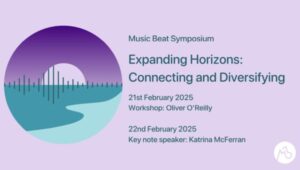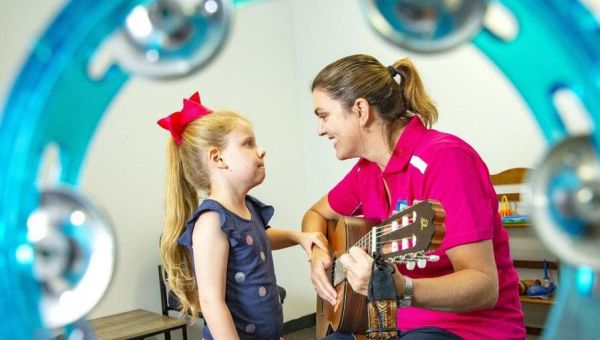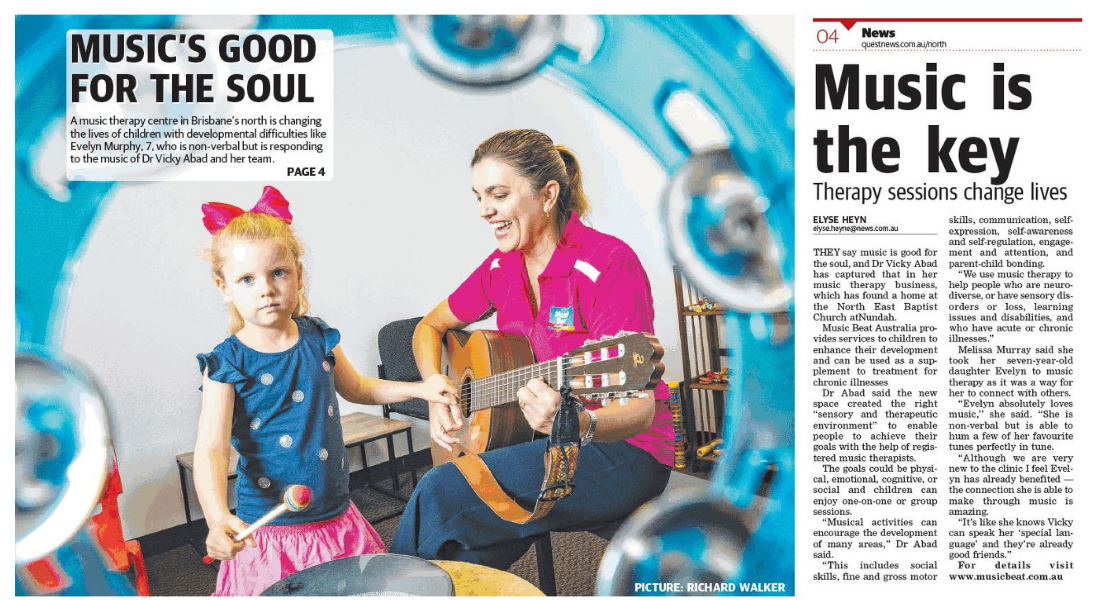
Music Beat Workshop + Symposium 2025
Expanding Horizons: Connecting & Diversifying The Music Beat Australia Workshop and Symposium is an opportunity for Registered Music Therapists (RMTs) to gather, share, collaborate, and


Elyse Heyn, Quest Newspapers
THEY say music is good for the soul, and Dr Vicky Abad has captured that in her music therapy business which has newly found a home at the North East Baptist Church in Nundah.
Music Beat Australia provides services to children to enhance their development and can be used as a supplement to treatment for chronic illnesses.
Dr Abad who is the Founder and Managing Director said their new permanent space would offer families easy access to clinical services.
“It creates the right sensory and therapeutic environment for us to help people achieve their goals,” she said.
“These can be physical, emotional, cognitive, and social needs of individuals.
“Our registered music therapists are university trained to Masters level and are registered with the Australian Music Therapy Association (AMTA).”
Children can participate in one-on-one or group sessions tailored to their specific needs.
“Musical activities can encourage the development of many areas,” Dr Abad said.
“This includes social skills, fine and gross motor skills, communication, self-expression, self-awareness and self-regulation, engagement and attention, and parent-child bonding.”
Melissa Murray said she took her seven-year-old daughter Evelyn to music therapy and it was a great way for her to connect with others.
“We use the Music Beat service for one-to-one therapy sessions,” she said.
“Evelyn absolutely loves music.
“She is non-verbal but is able to hum a few of her favourite tunes perfectly in tune.
“Although we are very new to the clinic I feel Evelyn has already benefited – the connection she is able to make through music is amazing.
“It’s like she knows Vicky can speak her ‘special language’ and they’re already good friends.”
Dr Abad said music therapy could be used for a range of different reasons.
“Given that music provides an alternative way for many people to communicate and interact socially, we often find that our clients use music therapy to meet communication and social goals, as well as to support the development of physical, cognitive and emotional goals,” she said.
“We use music therapy to help people who are neurodiverse, or have sensory disorders or loss, learning issues and disabilities, and who have acute or chronic illnesses.
“We help them with treatment and intervention as well as with quality of life goals.
“Watching a parent and child share an intimate moment together through music in music therapy – whether they are singing, making music, establishing a bond – is so incredibly precious, and one that will often bring a tear to not only the parent’s eyes but mine too.”
Originally published in Quest Newspapers

Expanding Horizons: Connecting & Diversifying The Music Beat Australia Workshop and Symposium is an opportunity for Registered Music Therapists (RMTs) to gather, share, collaborate, and

MELP Holiday Programs just for you! BACK BY POPULAR DEMAND – we are so excited to announce that Miss Anna will host “Special Edition Summer